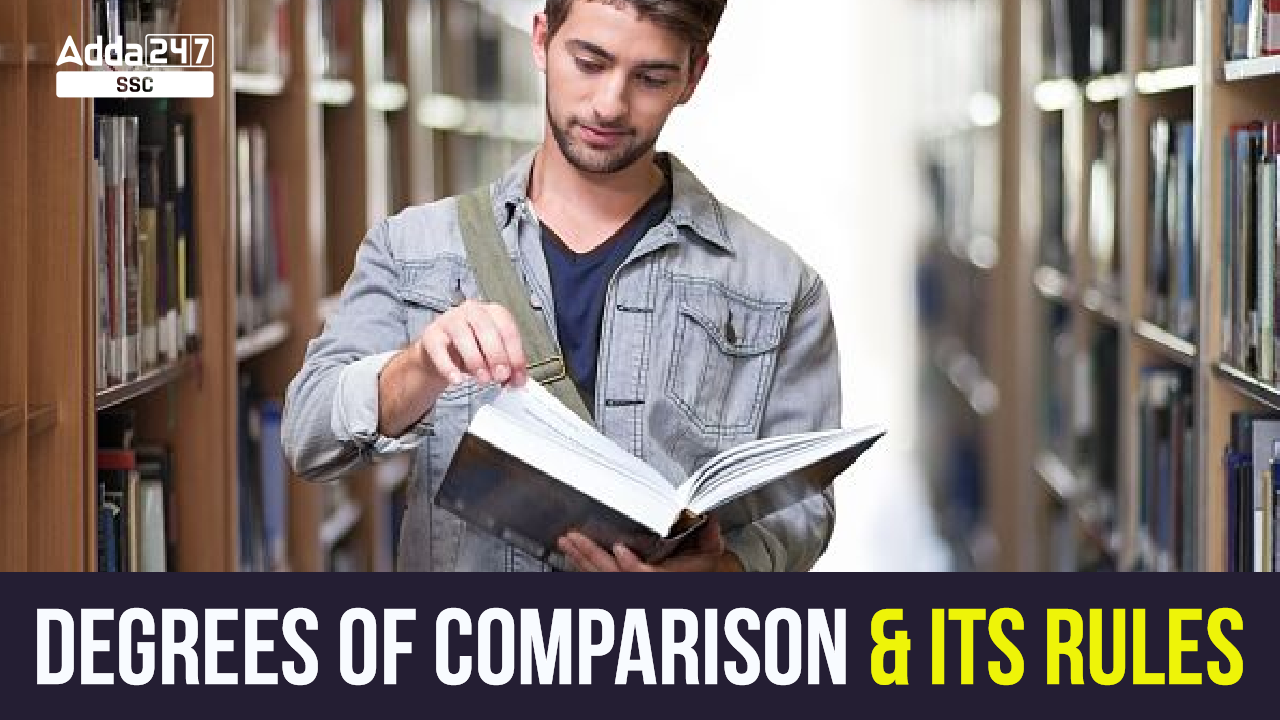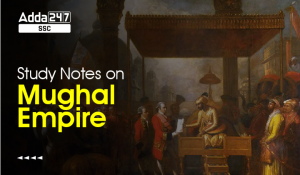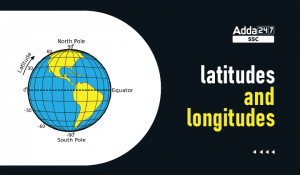Degrees of Comparison
- Positive degree: The positive degree is the base form of an adjective or adverb, without any comparison or modification. For example, “big,” “happy,” and “quickly” are all in the positive degree.
- Comparative degree: The comparative degree is used to compare two things or people. It is formed by adding “-er” to the end of the adjective or adverb (for short words) or by using “more” before the word (for longer words). For example, “bigger,” “happier,” and “more quickly” are all in the comparative degree.
- Superlative degree: The superlative degree is used to describe the highest or most extreme degree of a quality or action. It is formed by adding “-est” to the end of the adjective or adverb (for short words) or by using “most” before the word (for longer words). For example, “biggest,” “happiest,” and “most quickly” are all in the superlative degree
Rules
Rule 1: If a single quality is compared between two persons more or most are to be used.
She is wiser than her brother. ✘
She is wiser than her brother. ✔
Rule 2: When two qualities of a single person or a single thing is compared MORE is used with the first adjective even if it is a single-syllable word.
He is wiser than shrewd. ✘
He is more wise than shrewd. ✔
Rule 3: Remember that now double comparatives or superlatives are no longer used.
These shoes are preferable to those.✘
These shoes are preferable to those. ✔
Rule 4: The adjectives which give absolute sense do not take MORE or MOST with them. Similarly, we cannot say “more parallel”” more square” “more unique” etc.
This idea is more universal than that. ✘
This idea is universal and the other is not. ✔
Rule 5: The following adjectives are followed by to and not by then.
Junior, senior, inferior, prefer, preferable, superior, elder.
- This piece of cloth is superior to that. ✘
This piece of cloth is superior to that. ✔ - My sister is elder than me.
My sister is elder than me. ✔
Rule 6: Similar things should be compared when comparing two things.
The speed of this car is greater than the old one. ✘
The speed of this car is greater than that of the old one. ✔
(We cannot compare the speed of the car with the car)
Rule 7: When the comparative degree is used in the superlative sense we should:
- Use ‘any other’ if we are comparing the things or persons of the same group.
- Use any of the comparisons with the things or persons outside the group.
He is better than any student in his class. ✘
He is better than any other student in his class. ✔
Delhi is cleaner than any other city in Bangladesh. ✘
Delhi is cleaner than any city in Bangladesh. ✔
Rule 8: When two adjectives in different degrees of comparison are used in the same sentence both should be complete in themselves.
He is as bad if not better than his brother. ✘
He is as bad as if not better than his brother. ✔
Rule 9: Comparative degree should be used while comparing two and superlative degree when we compare more than two.
Among the three who are more hard-working. ✘
Among the three who are the most hard-working. ✔
Rule 10: When THAN or AS are followed by the first and the second person pronouns verb can be omitted but not in the case of the pronouns of a third person.
He is not as clever as his brother. ✘
He is not as clever as his brother is. ✔
Now let’s attempt a few questions based on the above-explained rules
- She is …………………… than her sister.
a) pretty
b) prettier
c) prettiest
d) None of these
- Martha is a …………………….. girl.
a) nice
b) nicer
c) nicest
d) None of these
- Supriya is the ……………………… girl in the class.
a) intelligent
b) more intelligent
c) most intelligent
d) None of these
- Martin speaks English …………………..
a) well
b) better
c) best
d) None of these
- Russia is the ……………………. country in the world.
a) big
b) bigger
c) biggest
d) None of these
- China is a ……………….. country.
a) big
b) bigger
c) biggest
d) None of these
- China is more than India.
a) big
b) bigger
c) biggest
d) None of these
- This is the …………………… book I have ever read.
a) interesting
b) more interesting
c) most interesting
d) None of these
- I am …………………. than you.
a) smart
b) smarter
c) smartest
d) None of these
- Take the ………………….. of the two routes.
a) short
b) shorter
c) shortest
d) None of these
Answers with Explanation:
1. She is prettier than her sister.
2. Martha is a nice girl.
3. Supriya is the most intelligent girl in the class.
4. Martin speaks English well.
5. Russia is the biggest country in the world.
6. China is a big country.
7. China is bigger than India.
8. This is the most interesting book I have ever read.
9. I am smarter than you.
10. Take the shorter of the two




 Top 10 Longest Rivers in India, Largest ...
Top 10 Longest Rivers in India, Largest ...
 Mughal Empire Notes For RRB NTPC Exam 20...
Mughal Empire Notes For RRB NTPC Exam 20...
 Longitude and Latitude of India - Defini...
Longitude and Latitude of India - Defini...









